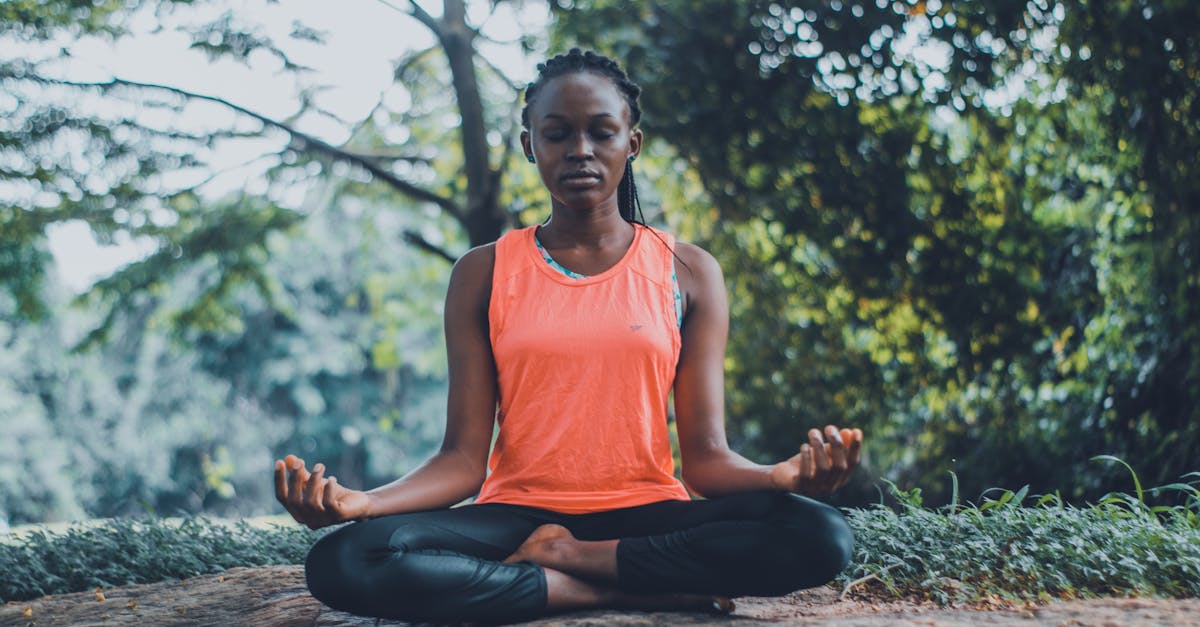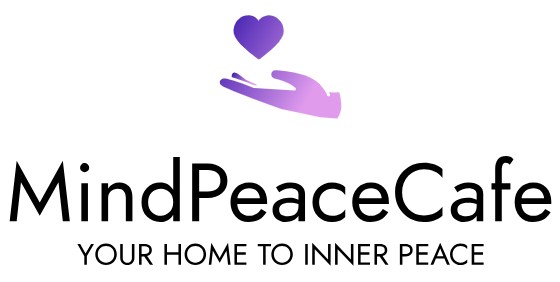Elevating Serenity: Harnessing the Collective Calm through Group Meditation

Embark on a stress-relief journey as we delve into the transformative power of group meditation. In today’s fast-paced world, stress has become an almost ubiquitous part of our lives, disrupting our mental equilibrium and overall well-being. This article aims to shed light on the impact of stress and how group meditation can serve as a potent antidote. Throughout this exploration, we will uncover the science behind stress, recognizing its triggers, and understanding how meditation, particularly when practiced in a collective setting, can significantly combat stress and anxiety. By delving into different meditation techniques and the profound impact of community support, we seek to unveil the holistic approach to stress management and mental wellness through group meditation.
1. Understanding Stress and its Impact
Stress is an ever-present force that impacts our daily lives, often seeping into our mental and physical well-being. When we’re stressed, it’s not just about feeling overwhelmed; it’s about the toll it takes on our overall health. Research indicates that stress can trigger a myriad of adverse effects, including heightened anxiety, disturbed sleep patterns, and even weakened immunity. In this section, we’ll uncover the intertwined relationship between stress and mental well-being, shedding light on how stress management is crucial for maintaining a healthy mind. By delving into recent studies and expert insights, we aim to provide a comprehensive understanding of the impact of stress on our daily lives and long-term mental equilibrium.
Moreover, stress isn’t just a fleeting discomfort; it has profound links to our mental health. Chronic stress has been associated with an increased risk of conditions such as depression, anxiety disorders, and even cognitive decline. Through a friendly and accessible exploration, we intend to highlight the holistic nature of stress, its various manifestations, and how it can creep into our lives without notice, affecting our decision-making, relationships, and overall happiness. By understanding the depths of stress and its implications, we can take the first steps toward effective stress management and improved mental well-being.
The Science of Stress
When it comes to stress, the impact doesn’t just stop at feeling mentally drained or emotionally overwhelmed. Stress takes a toll on our entire being, affecting both the mind and body. Understanding the science behind stress entails unraveling the intricate ways in which stress influences our physiological and psychological state. Physiologically, stress triggers a cascade of responses within our body, including the release of hormones such as cortisol and adrenaline, which can lead to increased heart rate, elevated blood pressure, and even compromised immune function. From a psychological perspective, chronic stress can lead to cognitive impairments, affecting memory, decision-making, and emotional regulation.
Exploring the connection between stress and the mind-body connection allows us to appreciate the intricate dance between our mental and physical health. By delving into the latest research and expert insights, we aim to clarify the direct impact of stress on our overall well-being, offering a friendly and accessible take on the physiological and psychological repercussions of living in a state of chronic stress. Unveiling the science behind stress not only empowers us to recognize the signs and symptoms but also underscores the importance of adopting effective stress management strategies to safeguard our holistic health.
Recognizing Stressors
In the hustle and bustle of modern life, stressors often lurk around every corner, sometimes in the most unexpected places. Identifying these common stress triggers and understanding their effects on our daily lives and mental health is fundamental to achieving a balanced state of well-being. From looming work deadlines and financial pressures to relationship dynamics and societal expectations, stressors come in various forms and can significantly impact our mental health and overall happiness.
Our exploration will delve into recent findings and professional insights to shed light on these common stress triggers. By offering relatable examples and down-to-earth explanations, we aim to equip readers with a friendly and accessible guide to recognizing stressors in their lives, empowering them to take proactive steps toward stress management and mental resilience. Recognizing stressors isn’t just about identifying the external pressures but also about understanding our internal responses, emotional triggers, and coping mechanisms. By unraveling the complex interplay of stress and daily life, we hope to provide a comprehensive understanding of how stressors influence our mental and emotional well-being, laying the groundwork for effective stress management strategies.
2. The Role of Meditation in Stress Management

Meditation, often heralded as a serene practice, is not just a relaxation technique but also a formidable ally in the battle against stress and anxiety. Delving into the profound impact of meditation on stress management, we’ll uncover how this time-honored practice serves as a powerful tool in restoring balance and promoting mental resilience. Grounded in centuries of wisdom and bolstered by modern scientific evidence, meditation has emerged as an accessible and effective means of combating the detrimental effects of stress. By exploring recent studies and personal narratives, we will take a friendly and accessible approach to unraveling the transformative potential of meditation in fostering emotional well-being.
Through this exploration, we aim to illustrate the various ways in which meditation can be integrated into daily life, showcasing its adaptability and versatility in addressing stress and anxiety. By incorporating relatable examples and easy-to-understand explanations, we aspire to provide readers with a comprehensive understanding of how meditation can recalibrate the mind and instill a sense of calm amidst life’s inevitable chaos. From mindfulness practices to guided meditation, we’ll explore these techniques with the aim of illuminating how meditation can act as a beacon of tranquility amid the storm of stress and anxiety.
Understanding Group Meditation
Group meditation offers a unique and collective sanctuary that enriches the individual practice of meditation, elevating its impact on stress reduction. It provides a space where individuals come together to share their energies, fostering an environment that enhances the overall meditation experience. Understanding the benefits of practicing meditation within a group setting entails unraveling the synergy born from shared intention and collective mindfulness. By delving into recent studies and personal testimonials, we aim to offer a friendly and accessible exploration of how group meditation amplifies the individual journey, fortifying mental resilience and emotional well-being.
Throughout our investigation, we will explore the social and emotional dynamics at play in group meditation, shedding light on how shared intention and communal support can significantly augment the stress-relieving potential of meditation. By offering relatable anecdotes and approachable explanations, we endeavor to provide readers with a comprehensive understanding of the transformative power of group meditation in promoting emotional well-being and alleviating the burdens of stress. From enhancing focus and concentration to fostering a sense of interconnectedness, we will delve into the multifaceted benefits of practicing meditation within a supportive and collective environment.
Scientific Insights
Scientific insights have increasingly pointed to the profound impact of meditation in alleviating stress and promoting overall well-being. Through a friendly and accessible exploration, we aim to delve into the research-backed evidence that underscores the effectiveness of meditation in stress relief, offering readers a comprehensive understanding of its transformative potential. Recent studies have shown that meditation can lead to a reduction in the body’s stress response, lowering levels of cortisol, often referred to as the ‘stress hormone.’ Additionally, research has highlighted the positive impact of meditation on various aspects of mental and emotional health, including decreased anxiety, improved resilience against stress, and enhanced emotional regulation.
Our investigation will offer relatable examples and easy-to-understand explanations, aiming to bridge the gap between scientific jargon and everyday understanding. By uncovering the latest research findings, we hope to illustrate the tangible and practical ways in which meditation can be harnessed as a powerful tool for stress relief. From changes in brain activity to physiological markers of stress, we will explore the concrete evidence that supports the use of meditation as a valuable resource in combating the pressures of daily life.
3. Group Meditation Techniques
Group meditation encompasses a rich tapestry of techniques, each offering its own unique pathway to stress management and inner peace. As we embark on an exploration of these diverse practices, we aim to shed light on the impact of each technique on stress management within a group setting. From guided meditation to mindfulness exercises, each approach carries its own distinct benefits, contributing to the collective goal of promoting emotional well-being and alleviating stress. By navigating through these techniques in a friendly and accessible manner, we hope to empower readers to find a practice that resonates with them, ultimately enriching their meditation experience and fortifying their mental resilience.
Our journey will incorporate relatable examples and approachable explanations, offering glimpses into the various group meditation techniques and how they can influence stress reduction. By providing insights into the diverse landscape of meditation practices, we aim to illustrate how each technique contributes to the collective calm and shared mindfulness that group meditation seeks to foster. Whether through visualization exercises, breath awareness, or loving-kindness meditation, we’ll unpack these practices, aiming to emphasize the role of each technique in sculpting a shared environment conducive to deep relaxation and stress relief.
Guided Meditation
Guided meditation serves as a gentle yet powerful approach to stress reduction, offering individuals a structured journey to inner peace and emotional resilience. Through a warm and friendly exploration, we aim to unravel the benefits and process of guided meditation sessions, providing a comprehensive understanding of how this practice can act as a soothing balm for the mind and spirit. Guided meditation offers individuals the opportunity to embark on a tranquil mental voyage, often aided by a facilitator’s calming voice and imagery. This guided approach can lead to heightened relaxation, improved focus, and a deep sense of emotional release, all contributing to effective stress reduction and overall well-being.
Our journey will encompass relatable examples and accessible explanations, aiming to demystify the process of guided meditation and its tangible benefits. By highlighting the seamless integration of guided meditation into daily life, we seek to empower individuals to embrace this practice as a valuable tool for navigating the pressures of everyday life. Guided meditation sessions often cater to various needs, such as anxiety relief, emotional grounding, and promoting a sense of tranquility, making it a versatile and accessible resource for stress reduction and mental fortitude.
Mindfulness Practices
Mindfulness practices act as a beacon of serenity in today’s fast-paced world, offering individuals a powerful means of promoting relaxation and mental calm. Embracing a warm and friendly approach, we aim to uncover the transformative influence of mindfulness on emotional well-being and its role in fostering inner peace. Mindfulness asks individuals to be present in the moment, anchoring themselves in the here and now, and cultivating a deep sense of awareness. Through this practice, individuals can foster resilience in the face of stress, heighten their emotional equilibrium, and nurture a lasting sense of tranquility.
Throughout our exploration, we will provide relatable examples and approachable explanations, showcasing the practical application of mindfulness in daily life. By emphasizing the simplicity and adaptability of mindfulness practices, we intend to inspire individuals to integrate mindfulness into their routines. From mindful breathing exercises to cultivating awareness through everyday activities, we’ll illuminate the diverse array of mindfulness techniques that can be harnessed to bolster mental calm and emotional resilience. Through this journey, we aspire to empower individuals to embrace mindfulness as a powerful tool for navigating life’s challenges and nurturing their inner peace.
4. Community and Support
Community and support play integral roles in nurturing mental well-being through the practice of collective meditation. In our warm and engaging exploration, we aim to underscore the significance of community in bolstering emotional resilience and fostering a shared sense of serenity. When individuals come together to engage in collective meditation, they create a space charged with collective intention and supportive energies, amplifying the impact of the practice. This shared environment not only enhances the individual meditation experience but also promotes a profound sense of connectedness, understanding, and emotional grounding.
Our journey will incorporate relatable examples and approachable explanations, aiming to highlight the substantial role of community and support in group meditation. By illustrating the ways in which collective meditation fosters a shared sanctuary of tranquility, we intend to empower individuals to seek and build supportive meditation communities. Whether through shared reflections, group discussions, or simply being present in each other’s journeys, community and support cultivate an inclusive space for emotional well-being and stress relief, highlighting the transformative power of collective meditation.
Building Connections
Group meditation practices serve as a conduit for building deep and nurturing connections, fostering both social and emotional support. In our friendly exploration, we aim to delve into the ways in which group meditation serves as a fertile ground for individuals to forge meaningful connections. By coming together in shared mindfulness, individuals not only find a space for personal growth but also cultivate supportive relationships and a profound sense of camaraderie. This collective sanctuary becomes a platform where individuals can share experiences, offer empathetic support, and weave a tapestry of mutual understanding, all contributing to a robust foundation for emotional well-being.
Our journey will encompass relatable examples and approachable explanations, highlighting the camaraderie and empathetic fabric woven through group meditation. By exploring the interpersonal dynamics at play during collective meditation, we aim to underline the significance of these connections in providing a sense of belonging, understanding, and communal strength. Ultimately, the relationships forged within these meditation communities become a source of resilience, fortifying individuals against the pressures of daily life and offering a safe haven for shared growth and emotional support.
Shared Benefits
In the world of group meditation, the benefits aren’t just individual; they extend to a collective sense of well-being and emotional resilience. Exploring these shared benefits, we uncover how group meditation becomes a sanctuary for not just personal growth but also a space where the collective energy nurtures emotional fortitude. When individuals come together in shared mindfulness, they create an environment that fosters a deep sense of support, understanding, and unity. This communal spirit not only magnifies the impact of individual meditation practices but also bestows a profound sense of interconnectedness, contributing to a resilient foundation for emotional well-being and stress relief. This journey will encompass relatable examples and accessible explanations, aiming to illuminate the transformative impact of collective meditation on emotional resilience and stress relief. By highlighting the communal strength and interconnectedness cultivated through group meditation, we can emphasize the collective nature of finding peace and supporting one another. Ultimately, the shared benefits of group meditation extend beyond mere relaxation; they become a source of strength, communal well-being, and an enduring foundation for navigating life’s challenges. Through this exploration, we aim to inspire individuals to embrace the collective impact of group meditation, fostering not just personal serenity, but a shared sanctuary for emotional strength and stress relief.
What are the benefits of group meditation compared to individual meditation?
Group meditation offers a unique collective energy that can intensify the experience. The group setting can provide a sense of community and shared energy, enhancing emotional resilience and overall well-being. Unlike individual meditation, group meditation can foster a deeper sense of connection and support, contributing to a unified atmosphere of tranquility and strength.
How can I find a group meditation practice in my area?
To find group meditation practices near you, consider reaching out to local yoga studios, community centers, or meditation groups. Alternatively, you can explore online meditation communities and social media groups, where individuals often organize and promote group meditation sessions. Additionally, attending wellness events, spiritual gatherings, or workshops focused on mindfulness and meditation can also help you connect with like-minded individuals engaging in group meditation practices.
What if I find it challenging to meditate in a group setting?
It’s normal to feel initial hesitancy or discomfort in group meditation settings, especially if you’re used to practicing individually. Remind yourself that your experience is personal, and there’s no right or wrong way to engage in meditation. It’s okay to start by simply being present and observing the group energy. Over time, you may find that sharing the space with others enhances your practice, deepening your sense of connection and tranquility.




